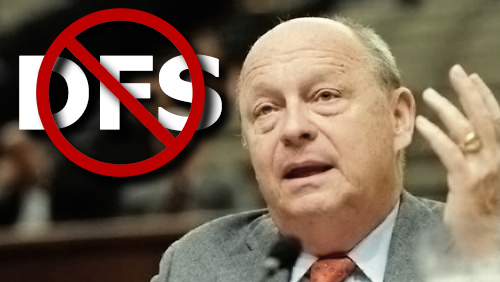 The passage of a daily fantasy sports (DFS) bill in New York has suffered a major setback after the New York Gaming Association (NYGA) has broken its silence to oppose plans of making the game legal in the Big Apple.
The passage of a daily fantasy sports (DFS) bill in New York has suffered a major setback after the New York Gaming Association (NYGA) has broken its silence to oppose plans of making the game legal in the Big Apple.
NYGA president James Featherstonhaugh said at the Crain‘s Business of Gaming forum on Tuesday that the association were “unanimous” in opposing the legalization of the DFS in New York, which was originally proposed by New York State Sen. John Bonacic.
Should DFS becomes legal in the Big Apple, Featherstonhaugh said New York-based casinos are demanding a piece of the market pie.
“Hopefully the fantasy sports people will recognize this will be very difficult to do unless it’s in cooperation with the existing industry,” Featherstonhaugh said. “That is what happened in the case of online poker, which was originally proposed as stand-alone and now is being done cooperatively.”
Pundits are all eyes on the developments of DFS in New York, especially since the US state is considered to be the biggest legal arena for the beleaguered industry.
Draftkings and FanDuel, two companies that have been fighting for DFS regulation in the United States, have decided to temporarily halt its operations in the city agreeing to settle with Attorney General Eric Schneiderman. The settlement has reportedly been made on the belief that lawmakers will pass a bill legalizing the DFS in New York.
Greg Carlin, chief executive officer of Rush Street Gaming, clarified that casino operators are not really blocking the passage of any bill that will make DFS legal in New York. What the New York-based casino operators doesn’t want to happen, according to Carlin, is for the state to give special licensing privileges to outside industry players.
“We’re not against daily fantasy sports,” Carlin pointed out. “What we’re against is a special bill that opens the Internet in New York to out-of-state companies that don’t invest in the state and that also gives them special licensing privileges … It’s really important that our industry has a high regulatory barrier.”